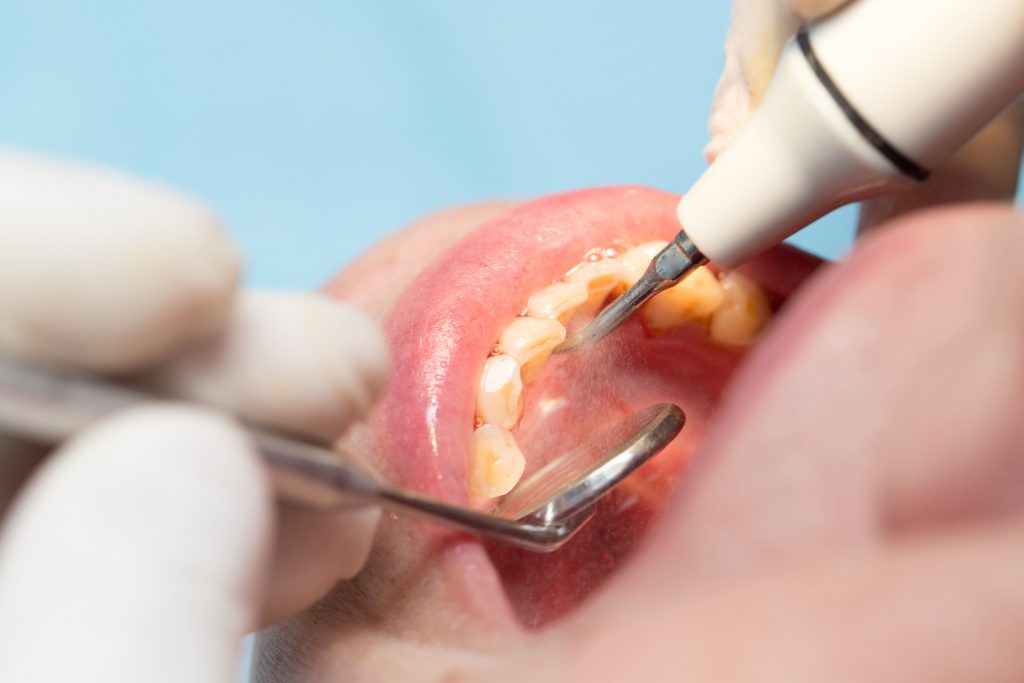
Oral Health 101: A Guide to Having Healthy Teeth and Gums
You know you should brush your teeth twice a day and floss regularly, but are you doing all you can for your oral health? Your teeth and gums deserve some extra TLC to keep them strong and prevent issues down the road. If your dental hygiene routine could use an upgrade, we’ve got the tips and tricks to get your mouth in mint condition. From the foods you eat to the products you use, there are easy ways to boost your oral wellness each and every day. Your pearly whites will thank you, and your dentist will surely notice the difference at your next checkup. Ready to dive in and discover how to keep your teeth sparkling and gums healthy for life? We’ve got you covered.
Achieving Excellent Oral Health: Why It Matters
A healthy mouth is so important for your overall well-being. Neglecting your teeth and gums can lead to pain, disease, and even tooth loss. The good news is achieving and maintaining excellent oral health is totally within your control.
First, brush your teeth at least twice a day with fluoride toothpaste and a soft-bristled brush. Fluoride helps prevent cavities by strengthening tooth enamel. Be sure to brush all tooth surfaces, especially where your teeth meet the gums.
Flossing is equally important. Flossing removes plaque and food particles from between the teeth that a toothbrush can’t reach. Aim for flossing at least once per day to prevent gum disease and cavities.
See your dentist for a professional cleaning and checkup twice per year. Your dentist or hygienist will remove built-up plaque that can lead to cavities and gum disease. They will also check for any oral health issues and catch problems early.
Limit sugary and starchy foods that feed the bacteria in your mouth. Bacteria release acids that attack your teeth and gums. Instead, choose water or unsweetened beverages and sugar-free gum or mints.
Don’t smoke or use any tobacco products. Smoking is terrible for your oral and overall health. It stains your teeth, gives you bad breath, and increases the risk of oral cancer and other diseases.
Practicing good oral care and hygiene, limiting sugary foods, avoiding tobacco, and visiting your dentist regularly are the keys to a healthy smile and body. Your teeth and gums will thank you for it!
Best Tips for Healthy Teeth: Brush, Floss, and More
To keep your pearly whites pearly and your gums in tip-top shape, you’ve got to commit to an oral care routine. Brushing and flossing are must-dos, but here are a few other tips for optimal oral health:
Brush your teeth at least twice a day with a soft-bristled brush and fluoride toothpaste. Gently brush all tooth surfaces, especially where your teeth meet the gums. Replace your toothbrush every 3-4 months or sooner if the bristles become frayed.
Floss at least once per day to remove plaque and food particles from between teeth that the toothbrush can’t reach. If flossing is new to you, start slowly and be gentle until your gums become accustomed to it.
Limit sugary and starchy foods that feed the bacteria in your mouth. Have sweets with meals instead of snacks and choose water to rinse after eating.
See your dentist for a professional cleaning and checkup twice a year. Your dentist can check for any oral health issues and perform other preventive care.
Don’t use your teeth as tools to open packages, hold items, etc. This can lead to chips, cracks, or other damage.
Stay hydrated and consider using a moisturizing mouthwash. Both a dry mouth and a lack of saliva can lead to cavities and gum disease.
Following these best tips for oral care and hygiene will help ensure you keep your natural teeth for life and have fresh breath and bright smiles to share. Your teeth and gums will thank you for it!
Maintaining Healthy Gums: Signs of Gum Disease and How to Prevent It
Your gums are just as important as your teeth when it comes to your oral health. Healthy gums provide a strong foundation for your teeth. Unfortunately, gum disease is a common problem, but the good news is there are signs you can watch for and steps you can take to maintain healthy gums.
Signs of Gum Disease
Keep an eye out for these indicators of gum disease:
· Swollen, red, or tender gums.
· Gums that bleed when brushing or flossing. Bleeding gums are not normal and are usually a sign of inflammation or infection.
· Gums that have pulled away from your teeth. You may notice more of your tooth surface is exposed or your teeth look longer.
· Loose or separate permanent teeth. As gums detach from teeth, they lose support and become mobile or fall out.
· Pus between your gums and teeth. Pus indicates an active infection that requires treatment.
Preventing Gum Disease
Practicing good oral hygiene is key to maintaining healthy gums and preventing disease.
· Brush your teeth twice a day with a soft-bristled brush and fluoride toothpaste. Gently brush along the gum line to remove plaque.
· Floss at least once per day to remove food and plaque between teeth that the toothbrush can’t reach.
· Limit sugary and starchy foods that feed the bacteria in your mouth.
· Visit your dentist for a professional cleaning and checkup every 6 months. Your dentist can remove built-up plaque and tartar and check for any signs of gum disease.
· Don’t use tobacco products, as they can damage your gums and oral tissues.
By brushing, flossing, eating a healthy diet, and avoiding tobacco, you can keep your gums in tip-top shape. Be proactive and see your dentist right away if you notice any symptoms of gum disease. Healthy gums are worth the effort to maintain your bright smile and teeth for life.
Finding the Best Dental Care: Qualities of an Excellent Dentist
Finding a dentist you trust and feel comfortable with is so important for your oral health and well-being. When looking for a new dentist, here are some qualities to keep an eye out for:
Experience and Expertise
Look for a dentist with many years of experience, especially with the latest dental technologies and procedures. An experienced dentist will be up-to-date with advancements in the field and able to handle any issues that come up. They should also have expertise in the specific treatments you need, like cosmetic dentistry, dental implants, or pediatric dentistry.
Strong Communication
A good dentist takes the time to listen to your concerns, answers your questions thoroughly, and makes you feel at ease. They explain procedures, diagnoses, and treatment options in an easy-to-understand way. They see you as a partner in your care and value your input.
Gentle and Caring Approach
Having dental work done can make anyone feel anxious or nervous. Look for a dentist with a kind, compassionate chairside manner who makes your comfort a priority. They take measures to reduce discomfort, offer relaxation techniques, and check in on how you’re feeling during longer procedures. Their staff should also be friendly, caring and help put you at ease.
High-Quality Facilities and Equipment
An excellent dentist invests in high-quality equipment, instruments, and technology that allow them to provide the best possible care. They follow strict infection control and sterilization protocols to ensure your safety. The overall office environment should be clean, modern, and professional.
Finding a dentist who meets all these standards may take some research, but your oral health is worth it. Ask for recommendations from friends and family or check online reviews from current patients. Schedule consultations with potential dentists to get a feel for their experience, approach, and facilities. The right dentist for you is out there—you just have to look for the signs of quality, experience, and care that will give you a smile you can be proud of for life.
Excellent Dental Services: Common Procedures to Maintain Oral Health
Visiting your dentist regularly for checkups and professional cleanings is key to maintaining excellent oral health. In addition to a dental exam, X-rays, and cleaning, your dentist may recommend some common procedures to treat any issues and keep your teeth and gums in tip-top shape.
Fillings
If your dentist detects any cavities, they will need to be filled to prevent further damage. Fillings are used to repair minor to moderate tooth decay or damage. Your dentist will clean out the decay and fill the hole in your tooth with a tooth-colored composite resin or silver amalgam filling.
Crowns
For teeth that are broken, cracked, or have had a large portion repaired with a filling, a dental crown may be needed. Crowns cover the entire tooth and help strengthen, shape, and restore it. Crowns are made to match your natural teeth and last for many years with proper care.
Root Canals
If the pulp inside your tooth becomes infected or inflamed, you may need a root canal treatment. During a root canal, your dentist will remove the damaged pulp tissue and disinfect and seal the tooth. A crown is typically placed on the tooth after to protect it. Root canals allow you to keep natural teeth that would otherwise require extraction.
Teeth Extractions
Sometimes a tooth is too badly damaged or decayed to repair and needs to be extracted or pulled. Your dentist will numb the area before extracting the tooth to minimize discomfort. They will then clean the socket and may place stitches to help control bleeding and promote healing. Extractions are often followed up with options to replace the missing tooth to avoid issues from shifting teeth or bone loss.
Keeping up with your recommended dental treatments and procedures will ensure your teeth and gums stay as healthy as possible for life. Be sure to continue brushing twice a day, flossing daily, limiting sugary and starchy foods, and not using tobacco products for the best results.
Conclusion
So there you have it, some simple tips to keep your mouth healthy and happy. Brush twice a day, floss regularly, limit sugary and starchy foods, and see your dentist for a cleaning every six months. Your teeth and gums will thank you, and your bright smile will shine through. Remember, your oral health is connected to your overall health and well-being. Take good care of your pearly whites – you only get one set of adult teeth in this lifetime. Keep on brushing and flossing, limit tooth decay, and avoid gum disease. Your mouth will be healthier, your breath will be fresher, and you’ll have a smile you can be proud to share with the world.
One of the dentists in Miami that provide excellent dental care services including cosmetic dental procedures is Village of Dentistry. To get the highest quality care, and faster results with same-day procedures, and hyper-personalized treatments, please call 954-998-2099 today.

